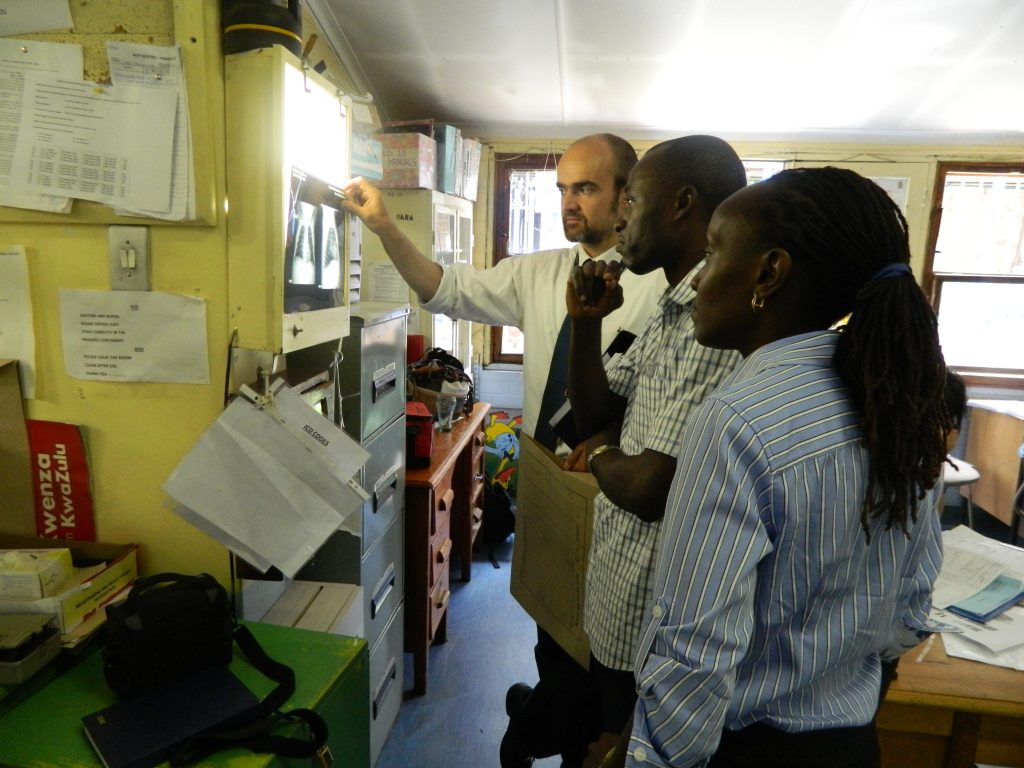Pneumonia Etiology Research for Child Health (PERCH)
Challenge:
Existing knowledge on the etiologies of childhood pneumonia is largely based on studies from the 1980s and 1990s. With expanded use of pneumococcal conjugate vaccine and Haemophilus influenzae type b conjugate vaccine and changes in host and environmental factors, a new evidence base to guide treatment and prevention strategies is needed.
Approach:

The Pneumonia Etiology Research for Child Health (PERCH) study is a case-control study led by IVAC that enrolled 4,232 cases and 5,325 controls between 2011-2014 at 9 sites in 7 countries (The Gambia, Mali, Kenya, Zambia, South Africa, Bangladesh and Thailand).
Cases were defined as children aged 1-59 months hospitalized with pre-2013 WHO-defined severe or very severe pneumonia. Controls were randomly selected from the community and age-frequency matched to cases. Multiple specimens were collected from each case and control and tested for over 30 pathogens. Data were collected on clinical signs and symptoms, medical history, chest x-ray results, lab results, treatment, outcomes, and demographic, household, and environmental risk factors.
The objectives of PERCH were to:
- Determine the etiology of pneumonia by integrating results from multiple specimens
- Estimate the fraction of pneumonia attributable to pathogens for which vaccines are available or under development (e.g., pneumoniae, respiratory syncytial virus, parainfluenza virus, influenza and S. aureus) as well as other known, but poorly quantified causes of pneumonia in children
- Assess risk factors for pneumonia.
Results
Foundational Papers
- Rationale and Study Design for PERCH (Supplement of 15 papers in Clinical Infectious Diseases)
- Basis for the Primary Etiology Results (Supplement of 23 papers in Clinical Infections Diseases)
Primary Results paper

Project Status:
Complete
Practice Areas:
Disease Epidemiology
Disease Focus:
Pneumococcal disease, Pneumonia
Location:
Bangladesh, Kenya, Mali, South Africa, Thailand, The Gambia, Zambia
Target Population:
Child
Partners:
The Gambia: Medical Research Council, Basse, The Gambia
Mali: Division of Infectious Disease and Tropical Pediatrics, Department of Pediatrics, Center for Vaccine Development, University of Maryland School of Medicine, Baltimore, Maryland
Centre pour le Développement des Vaccins (CVD-Mali), Bamako, Mali
Kenya: KEMRI-Wellcome Trust Research Programme, Kilifi, Kenya; University of Oxford, Oxford, UK
South Africa: Medical Research Council: Respiratory and Meningeal Pathogens Research Unit and Department of Science and Technology/National Research Foundation: Vaccine Preventable Diseases, University of the Witwatersrand, Johannesburg, South Africa
Zambia: Boston University School of Public Health, Boston, Massachusetts; University Teaching Hospital, Lusaka, Zambia
Thailand: Thailand Ministry of Public Health – U.S. CDC Collaboration, Nonthaburi, Thailand
Bangladesh: icddr, b, Dhaka and Matlab, Bangladesh
Central Laboratory: Canterbury Health Laboratories, Christchurch, New Zealand; University of Otago, Christchurch, New Zealand
Data Coordinating Center: The Emmes Corporation, Rockville, Maryland
Project Contact:
Maria Deloria Knoll, PhD
mknoll2@jhu.edu
Related Resources
